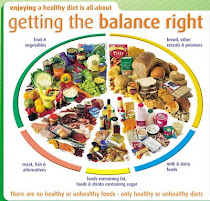The title, "Recommended Caloric Intake" is very general. We cannot give you a number and expect it to be the correct number of calories needed for you. It's not one size fits all; there is no recommended caloric intake for all human beings. If you try to Google, "recommended caloric intake," there will be no link to tell you what the average caloric requirements are. We, as humans, are much too varied. We all require different amounts of calories to grow properly depending on our gender, age, height, weight, activity intensity, activity frequency, and more variables. Even when we narrow it down to an active teen's recommended caloric intake, there is no right answer.
A nutritionist from the United Kingdom's government started to get people to use "EARs," or Estimated Average Requirements. Those numbers are estimated by your gender and age only, so they don't factor many variables such as an individual's height or how active you are. The average height and weight of the children in the UK is used to get an age group's "EAR," and the the activity levels are all estimated, ergo, Estimated Average Requirement. A person's EAR is an in the ballpark number, but a free, online Calorie Calculator can be even more specific. There's a great Calorie Calculator at
Now, let's delve into how the Calorie Calculator works. The biggest factor as to how many calories you should be eating is your age. As a teenager, you would think that we are younger than adults and therefore would need less calories, right? Wrong! Because we're teenagers, we're growing and actually need a larger amount of calories than adults. Adults are finished with puberty and aren't growing, so they don't need as many calories as we do. Up until adolescence, however, the recommended caloric intake will steadily increases with the individual's age. Another huge factor in how many calories an teenager needs is their gender. On average, boys need more calories than girls do. This is because, to state the obvious, boys are generally taller and weigh more than girls do. In order to maintain their larger stature, boys need to take in more calories than girls. There is also a greater percentage of active adolescent boys than girls. Since boys are, on average, competing in sports and such more, they need more calories to sustain themselves through the day.
Speaking of activity levels, how much you exercise is a third significant factor in how many calories one needs. For example, an professional athlete training for the Olympics can eat up to 12,000 calories a day! If you use the Calorie Calculator, it will ask you for both your activity frequency and intensity to factor into how many calories you need. Those who partake in sports need to keep in mind that they need a sustained healthy diet. A teenage athlete needs to meet his or her daily caloric requirements every day. If you only eat your recommended caloric requirement on the day you run, but under ate the previous week, you'll start to feel tired. The body burns energy from carbohydrates first, but once the body runs out of carbohydrates it moves on to burning fat. Fat is a long term energy storage, and if you don't have a good amount of fat in your body from the weeks leading up to the long run, you won't have any back-up energy to run on. How soon you eat before your activity is also a good thing to keep in mind. Any runner fears debilitating side stitches. For long distance runners, it is recommended to wait 2 1/2 hours between eating and running. Sprinters have to fast for even longer, about 3 1/2 hours between food and running.
I hope you now have enough background knowledge about calories. Now, you should know what influences your caloric requirements and how to calculate your individual, unique caloric requirement. But what good is knowing how many calories you need if you don't know where to get them from? Equally as important as an athlete's caloric requirement is the food he or she eats to obtain them. The rest of the posts are all about the macronutrients, what you should and should not eat to obtain these calories, and an example of what you could eat. Have fun reading on!
Wednesday, April 28, 2010
Recommended Caloric Intake
Posted by Kylie at 2:58 PM
Subscribe to:
Post Comments (Atom)





0 comments:
Post a Comment